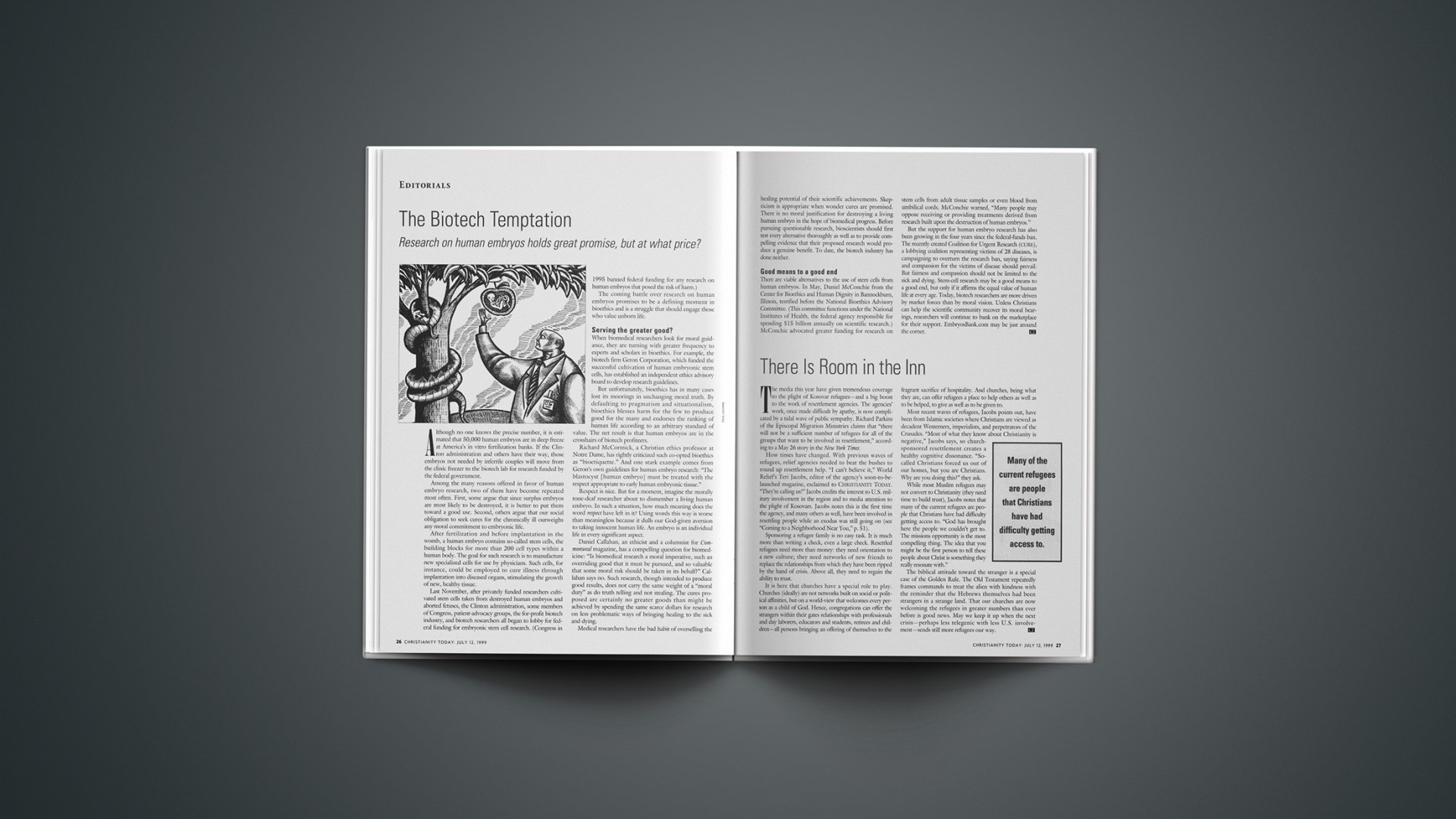The media this year have given tremendous coverage to the plight of Kosovar refugees—and a big boost to the work of resettlement agencies. The agencies’ work, once made difficult by apathy, is now complicated by a tidal wave of public sympathy. Richard Parkins of the Episcopal Migration Ministries claims that “there will not be a sufficient number of refugees for all of the groups that want to be involved in resettlement,” according to a May 26 story in the New York Times.
How times have changed. With previous waves of refugees, relief agencies needed to beat the bushes to round up resettlement help. “I can’t believe it,” World Relief’s Teri Jacobs, editor of the agency’s soon-to-be-launched magazine, exclaimed to Christianity Today. “They’re calling us!” Jacobs credits the interest to U.S. military involvement in the region and to media attention to the plight of Kosovars. Jacobs notes this is the first time the agency, and many others as well, have been involved in resettling people while an exodus was still going on (see “Coming to a Neighborhood Near You,” p. 51).
Sponsoring a refugee family is no easy task. It is much more than writing a check, even a large check. Resettled refugees need more than money: they need orientation to a new culture; they need networks of new friends to replace the relationships from which they have been ripped by the hand of crisis. Above all, they need to regain the ability to trust.
It is here that churches have a special role to play. Churches (ideally) are not networks built on social or political affinities, but on a world-view that welcomes every person as a child of God. Hence, congregations can offer the strangers within their gates relationships with professionals and day laborers, educators and students, retirees and children—all persons bringing an offering of themselves to the fragrant sacrifice of hospitality. And churches, being what they are, can offer refugees a place to help others as well as to be helped, to give as well as to be given to.
Many of the current refugees are people that Christians have had difficulty getting access to.
Most recent waves of refugees, Jacobs points out, have been from Islamic societies where Christians are viewed as decadent Westerners, imperialists, and perpetrators of the Crusades. “Most of what they know about Christianity is negative,” Jacobs says, so church-sponsored resettlement creates a healthy cognitive dissonance. “So-called Christians forced us out of our homes, but you are Christians. Why are you doing this?” they ask.
While most Muslim refugees may not convert to Christianity (they need time to build trust), Jacobs notes that many of the current refugees are people that Christians have had difficulty getting access to. “God has brought here the people we couldn’t get to. The missions opportunity is the most compelling thing. The idea that you might be the first person to tell these people about Christ is something they really resonate with.”
The biblical attitude toward the stranger is a special case of the Golden Rule. The Old Testament repeatedly frames commands to treat the alien with kindness with the reminder that the Hebrews themselves had been strangers in a strange land. That our churches are now welcoming the refugees in greater numbers than ever before is good news. May we keep it up when the next crisis—perhaps less telegenic with less U.S. involvement—sends still more refugees our way.
Copyright © 1999 Christianity Today. Click for reprint information.










